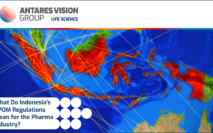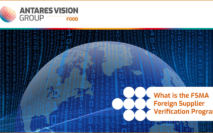These questions were asked at our Certification Course in collaboration with Life Science Training Institute:
LSTI Course: Key Elements of Pharmaceutical Serialization and Implementation
FAQ from Wholesale Distributors:
Listed are all pending compliance requirements, including the Salable Returns.
- How does DSCSA apply for distributors?
| Nov. 27, 2019 | Accept only serialized product | Wholesalers may engage only in transactions of products encoded with unique product identifiers, which will be used to verify a drug’s legitimacy and enable product tracing in the event of a recall or the identification of a suspect product. |
| Nov. 27, 2019 | Match original transaction information with returned products that will be resold. | Wholesalers may accept returned products for resale only if they can associate the returned product with the original transaction information and transaction statement for that product. |
| Nov. 27, 2019 | Verify unique product identifier of suspect products at package level. | Wholesalers must verify the product identifier, which includes the standardized numerical identifier, or SNI, for products they suspect are potentially counterfeit, diverted, or otherwise unsafe. |
| Nov. 27, 2019 | Verify the unique product identifier of returned products intended for resale. | Wholesalers must verify the product identifier, including SNI, of returned products intended for resale. |
| Nov. 27, 2023 | Participate in electronic package-level traceability system | Wholesalers must exchange transaction information and statements in an interoperable electronic manner, and the transaction information must include product identifiers. Wholesalers must put in place systems and processes for electronic package-level verification and provide traceability information to regulators to permit access to a drug’s full distribution history when investigating a suspect. product or during a recall. |
- Explain grandfathered products: Can they be sold? What do they mean?RELATIONSHIP TO “GRANDFATHERED” PRODUCTS UNDER SECTION 291 582(a)(5) OF THE FD&C ACTThis compliance policy addresses products a manufacturer introduces in a transaction into commerce without product identifiers between November 27, 2017, and November 26, 2018. In the future, FDA intends to issue additional guidance that will outline FDA’s current thinking on the “grandfathering product” provision of section 582(a)(5)(A) of the FD&C Act regarding products not labeled with a product identifier that are in the pharmaceutical distribution supply 298 chain at the time of the effective date of the requirements of section 582. In that guidance, FDA intends to address the relationship of the compliance policy set forth in this guidance with “grandfathered” products.DSCSA non-enforcement draft guidance
The full compliance policy still hasn’t been published, as it’s going through review as a draft to accept challenges, recommendations and a critique (the comment period closed in January). The primary reason for seeking further guidance dealt with enforcement of DSCSA, specifically with regards to manufacturers applying serialization to products. The deadline for compliance here remains Nov. 27 of 2017, but in the draft the FDA states they will not enforce the manufacturers’ product identifier requirements under the DSCSA for another full year. While this buys some manufacturers, wholesalers, and repackagers some more time, it begged the question about what “introduced in a transaction into commerce before Nov. 26, 2018” meant.
Specifically, from lines 37-41 of the draft guidance:
‘In brief, FDA does not intend to take action against manufacturers who do not affix or imprint a product identifier to each package and homogeneous case of products intended to be introduced in a transaction into commerce before Nov. 26, 2018. This represents a one year delay in enforcement of the requirement for manufacturers to affix or imprint product identifiers.’
What does that mean? A less conservative approach might assume that as long as the batch is released before Nov. 27, 2018, then there is no requirement for compliance, even if shipping that product after the deadline. The more conservative approach would have meant to consider each and every product individually. Fortunately, the November 2017 Grandfathering draft guidance clears this up.
The Grandfathering draft guidance specifically states (from lines 122-124):
‘For the purposes of this guidance, a package or homogenous case of product is “in the pharmaceutical distribution supply chain” if it was packaged by the product’s manufacturer before November 27, 2018.’
The key word is “packaged”. Any product “packaged by the product’s manufacturer” before the deferred compliance enforcement date (November 27, 2018) will be exempt from enforcement of DSCSA requirements for affixing a Product Identifier. Subsequently, this draft guidance exempts any trading partner requirements relating to Product Identifier as it relates to product supplied by a manufacturer if that product was packaged by the manufacturer before November 27, 2018 without affixing a Product Identifier to that package or homogenous case. This includes the following:
Exemptions for Product Packaged by a Manufacturer without a Product Identifier before 11/27/18:
- The investigation of suspect product, that is verifying product at the product level using the Product Identifier (this applies to manufacturers, as well as their downstream trading partners).
- Wholesaler requirements that they engage in transactions involving only product encoded with a Product Identifier beginning November 27, 2019.
- Dispenser requirements that they engage in transactions involving only product encoded with a Product Identifier beginning November 27, 2020.
- Repackager requirements that they accept ownership of product encoded with a Product Identifier beginning November 27, 2018.
However, it is important to understand what is not exempted.
Not Exempted (for any manufacturer or downstream trading partner):
- There is no extension of compliance dates for the requirements for investigation/verification of product at the package level using the Product Identifier Product packaged by a manufacturer (or repackager) prior to November 27, 2018 that has had a Product Identifier affixed to its labeling.
- There is no exemption from the requirement to validate any applicable transaction history and transaction information in their possession and otherwise investigate any suspect product to determine if it is illegitimate.
And specifically, for repackagers:
- If a repackager wishes to transfer ownership of a package or homogenous case of product without a product identifier on or after November 27, 2018, it must first add a product identifier to the package or homogenous case of product. Basically this is saying that all product packaged after November 27, 2018 must be serialized (have a Product Identifier), regardless if it is packaged by a manufacturer or a repackager.
- What are the penalties if you don’t follow DSCSA?
As of this moment FDA didn’t announce any penalties.
- What products don’t need to comply with DSCSA?
- Blood or blood components intended for transfusion
- Radioactive drugs or biologics
- Imaging drugs
- Certain IV products
- Medical gas
- Homeopathic drugs
- Lawfully compounded drugs
We appreciate your feedback and would like to know how else we can help. Please send your questions or comments about “FAQ from Wholesale Distributors” here.




